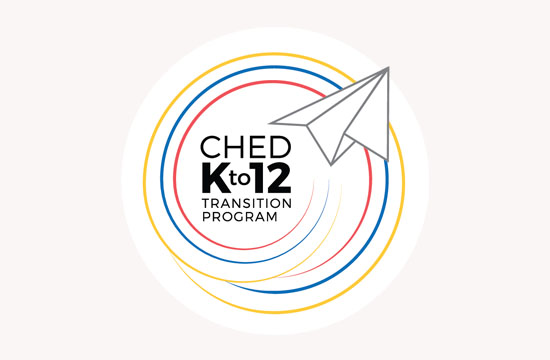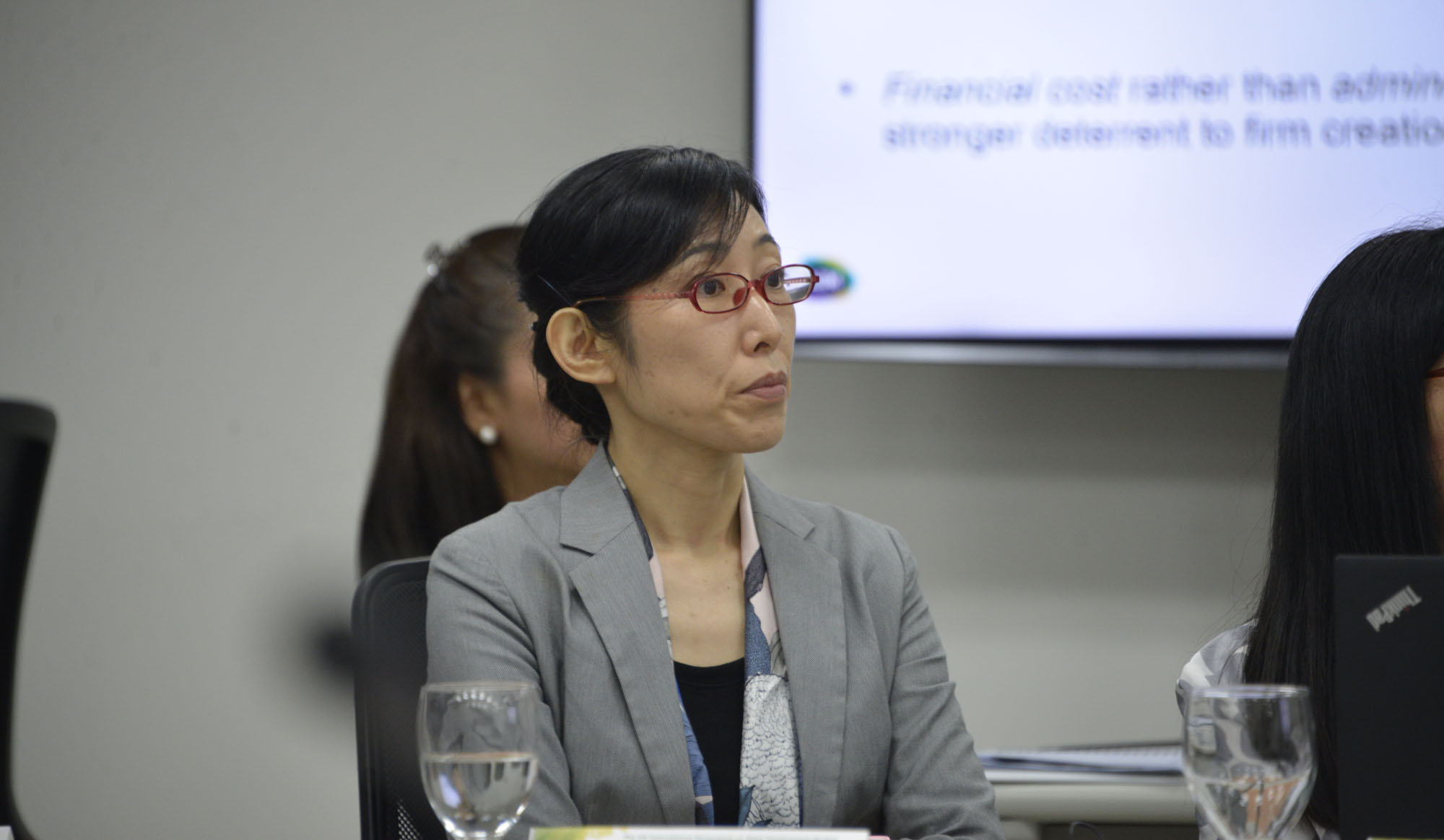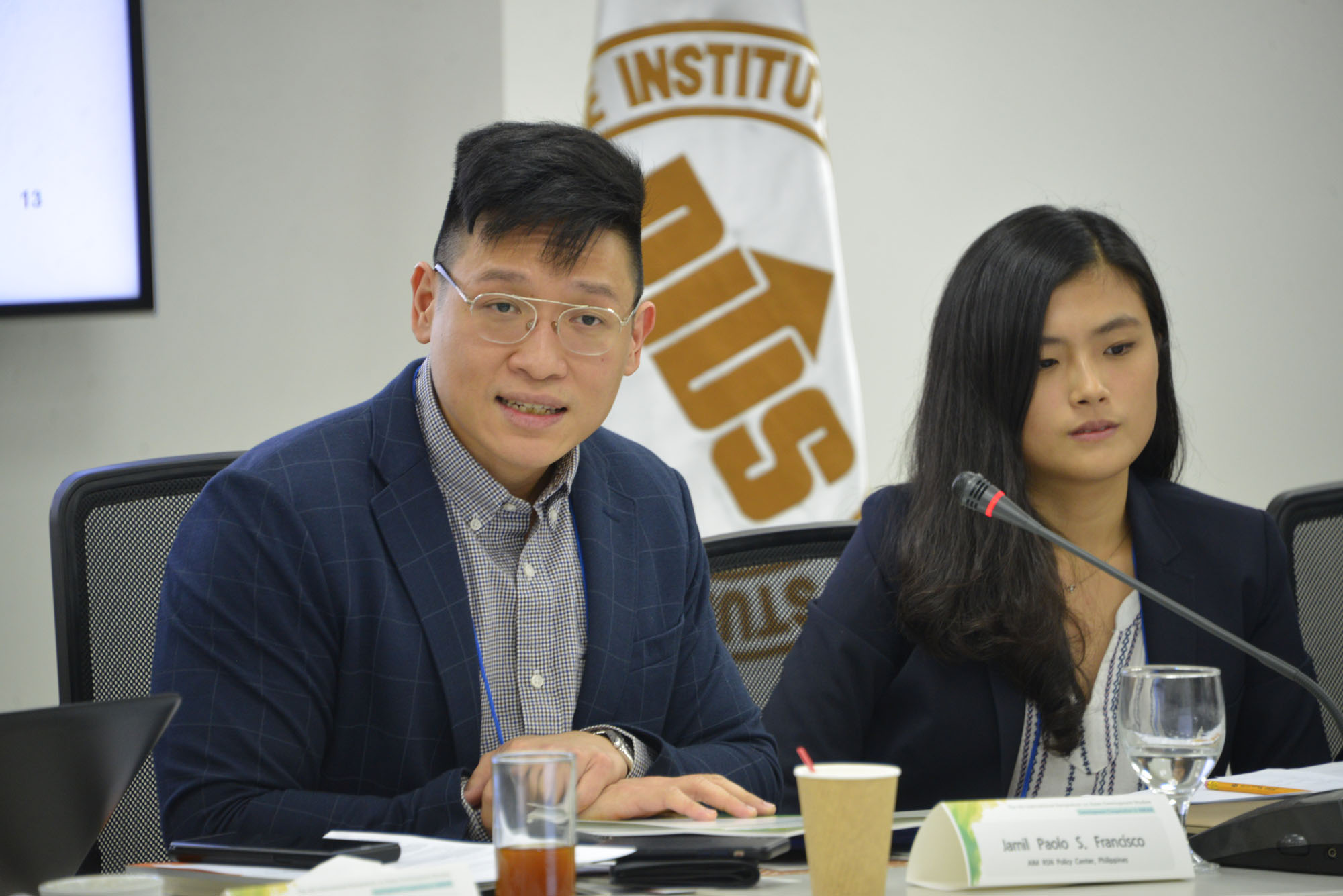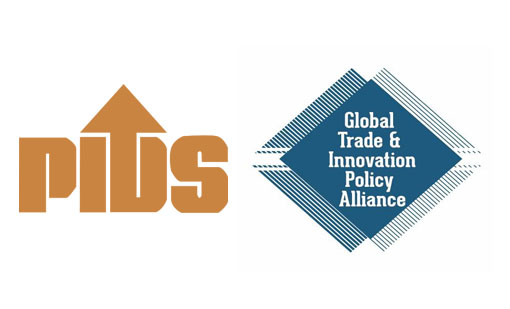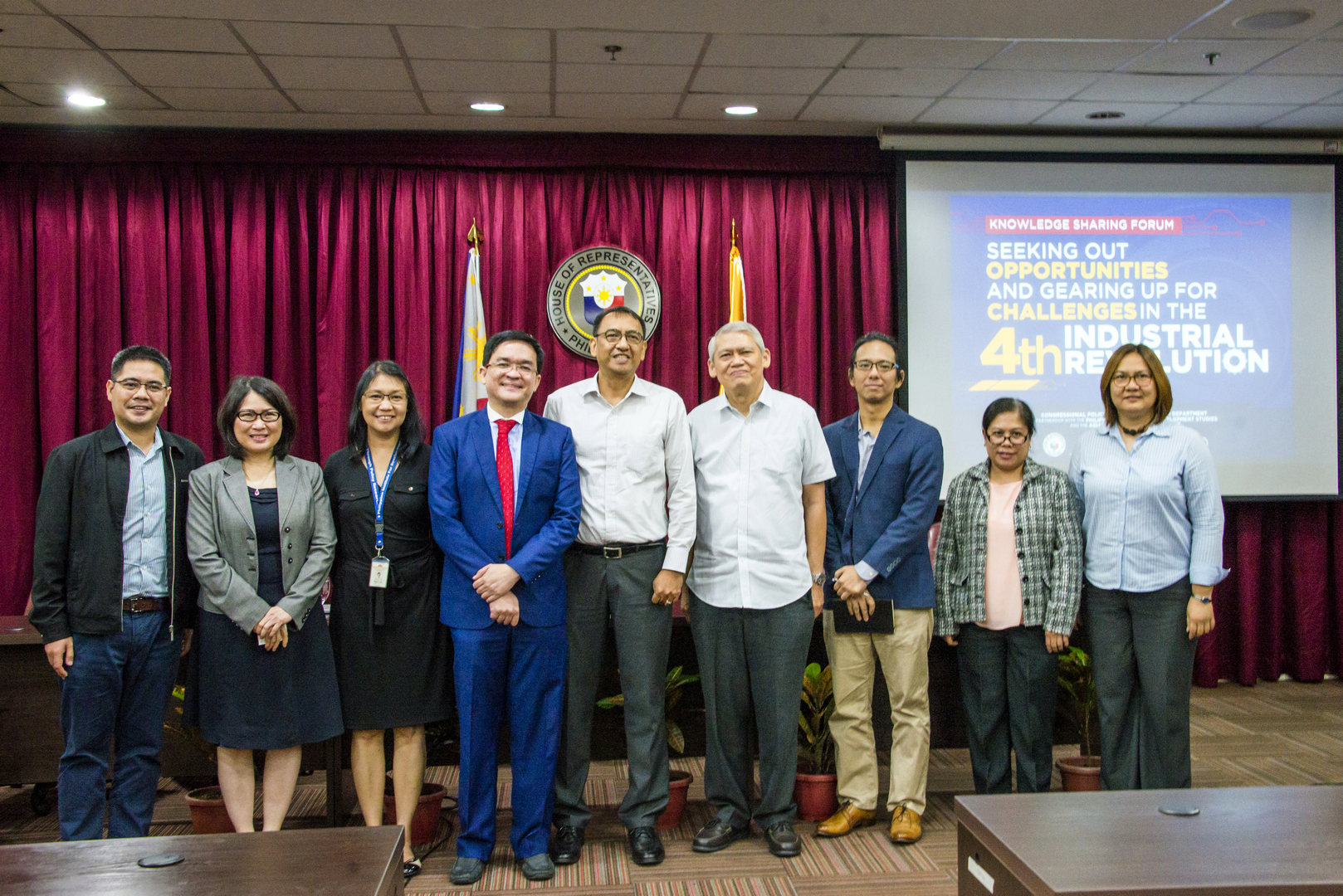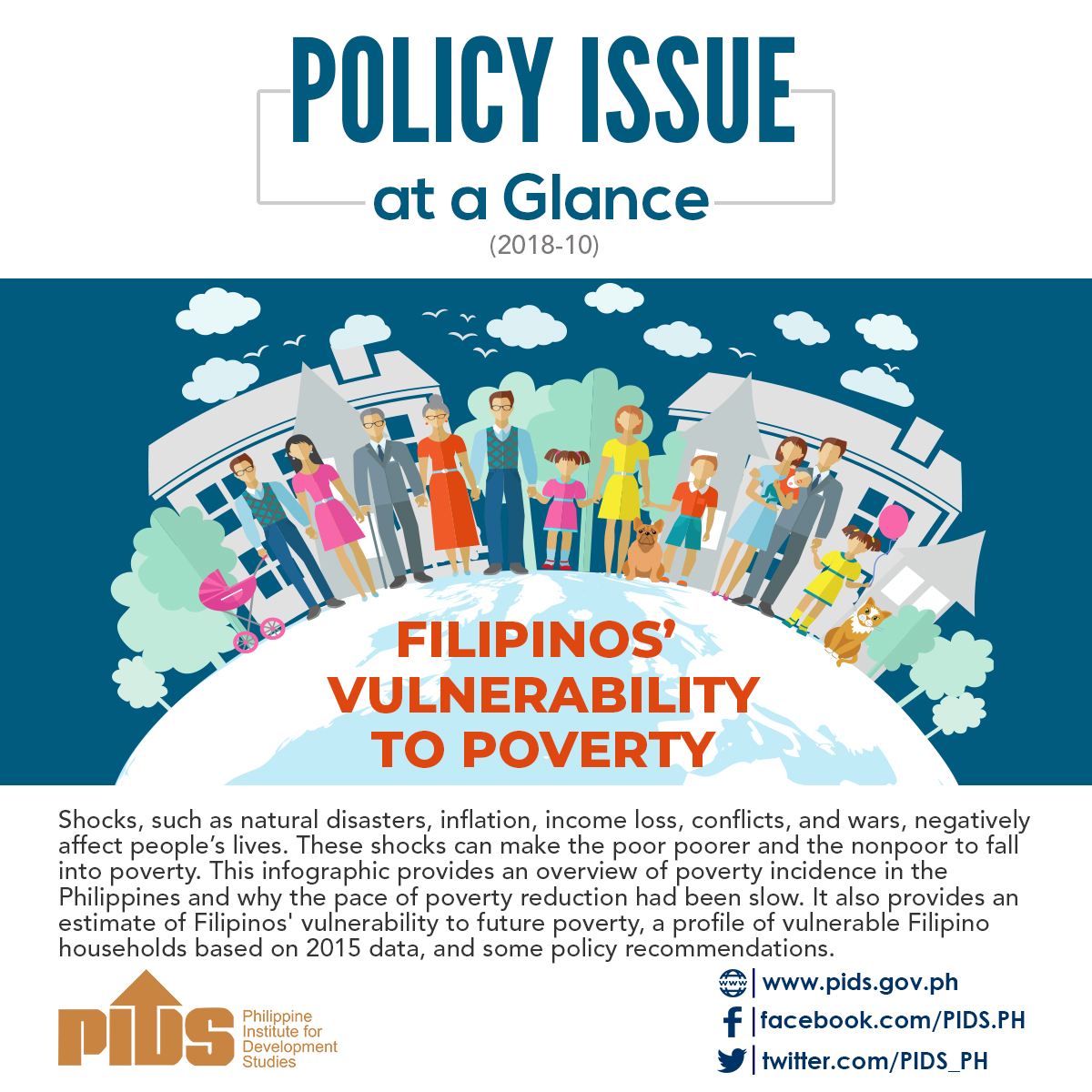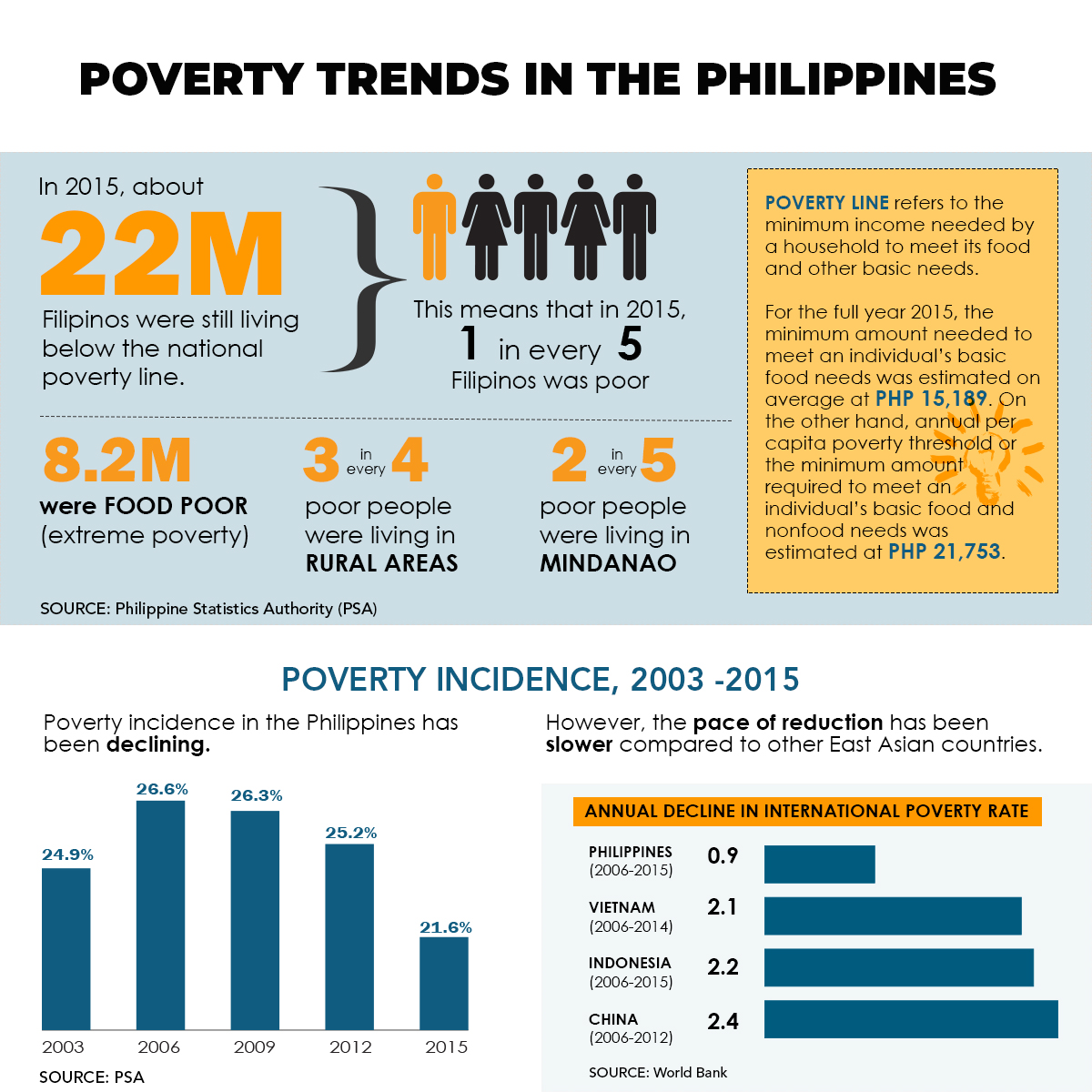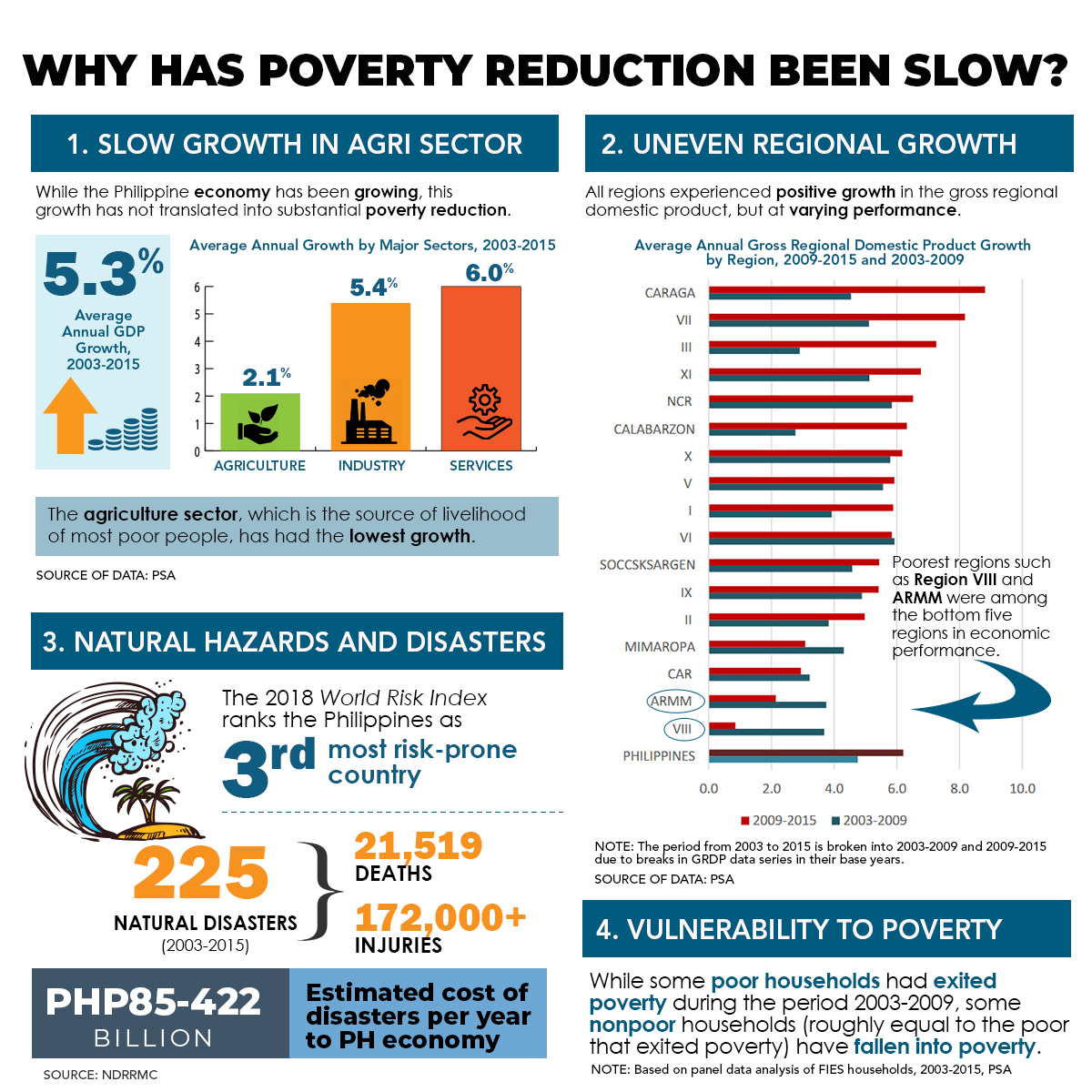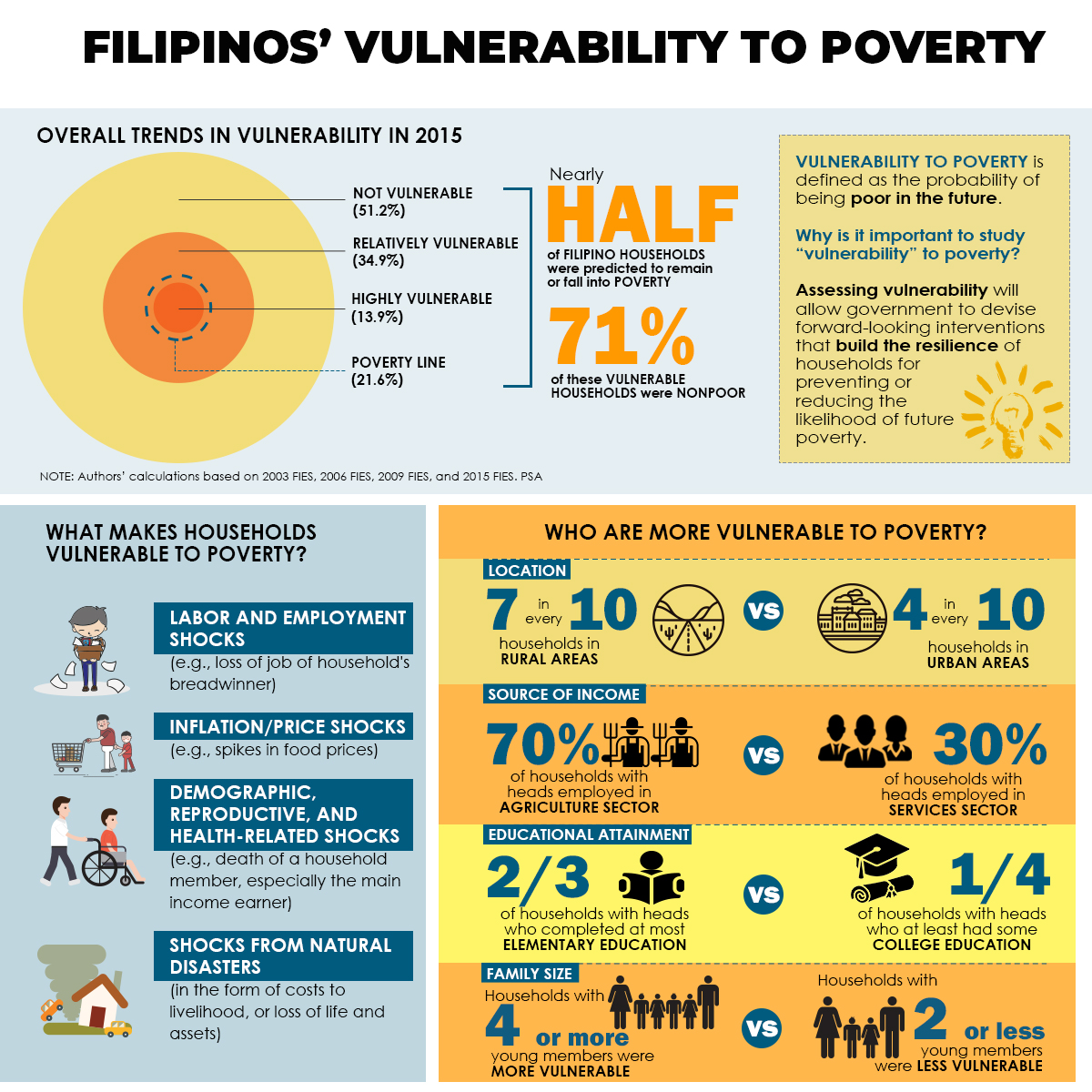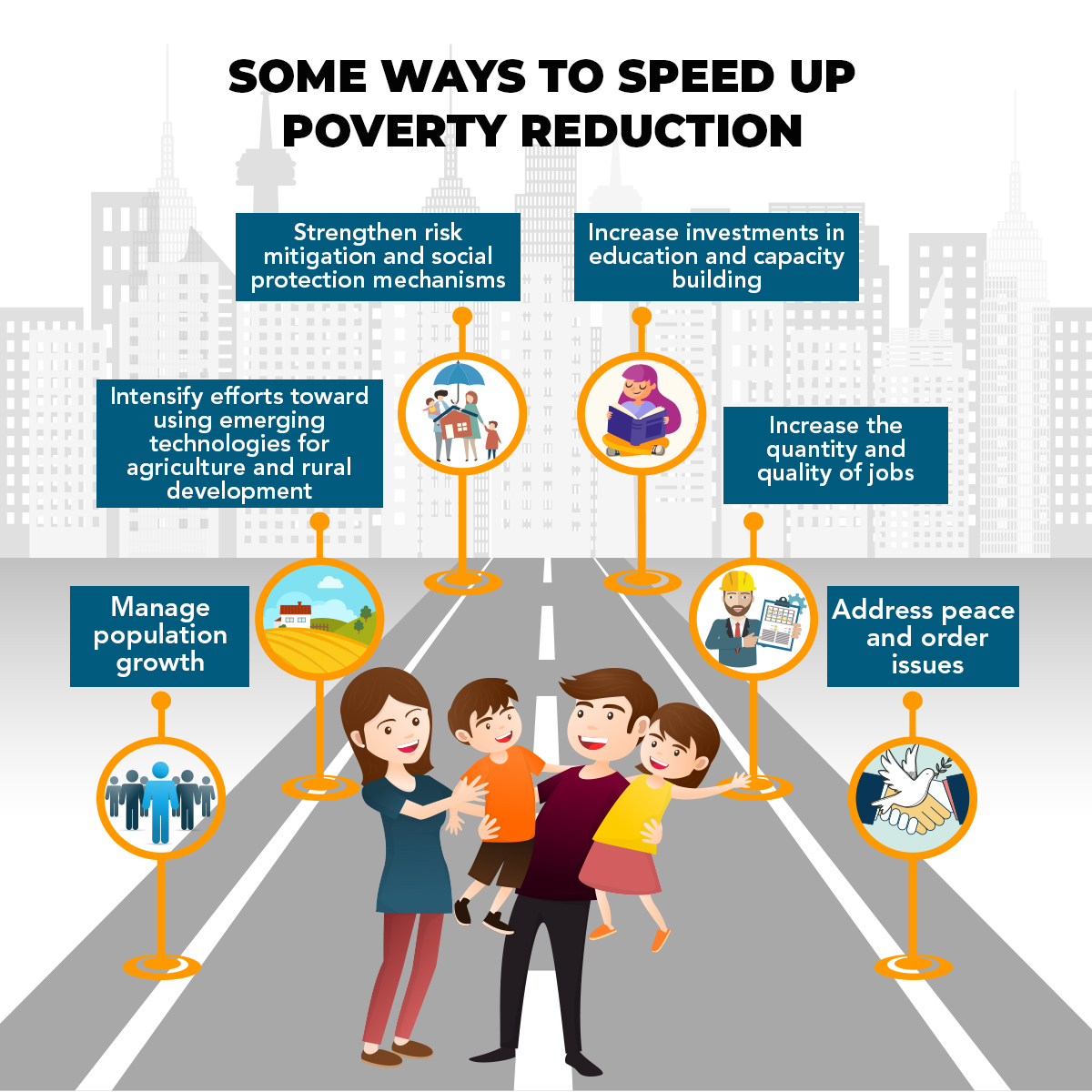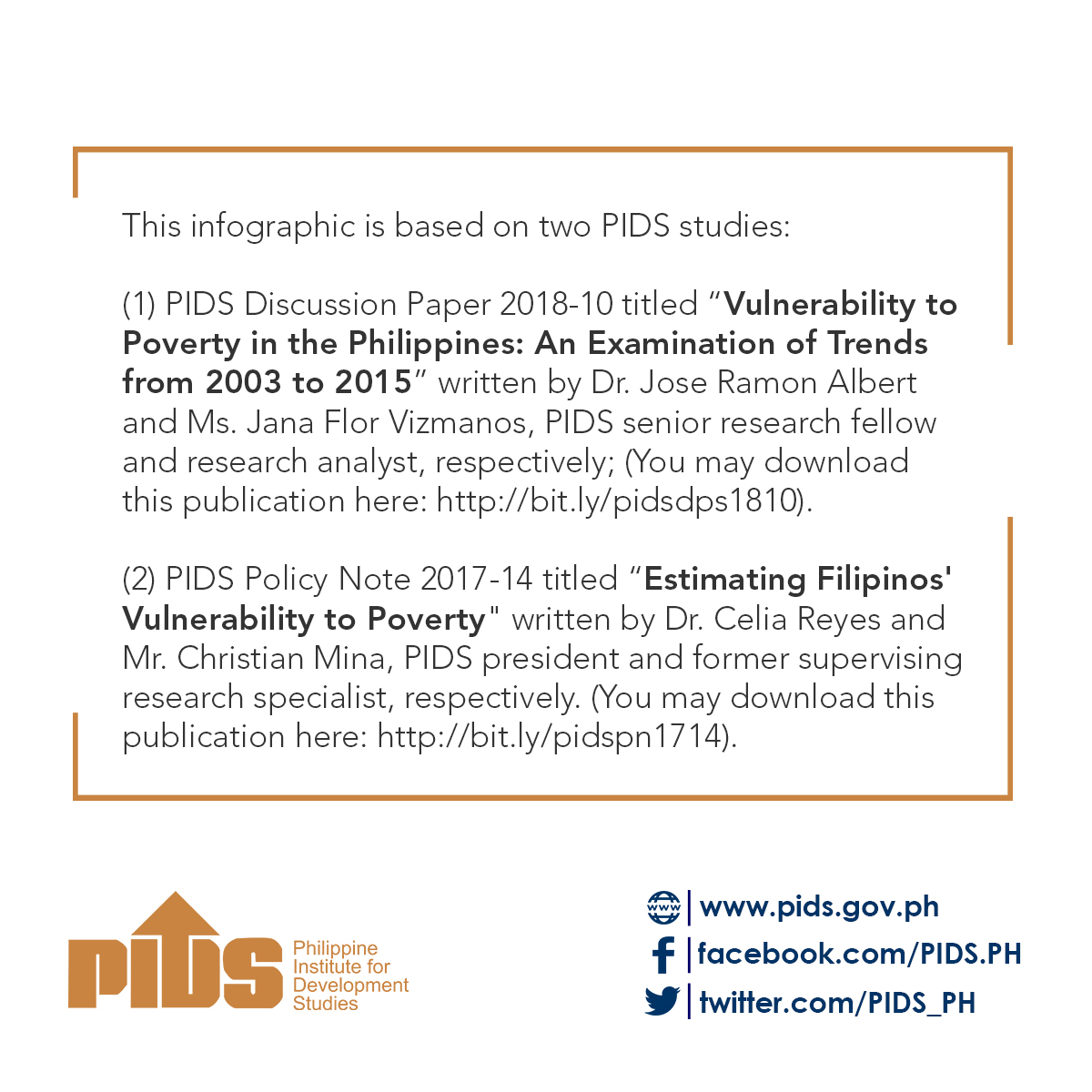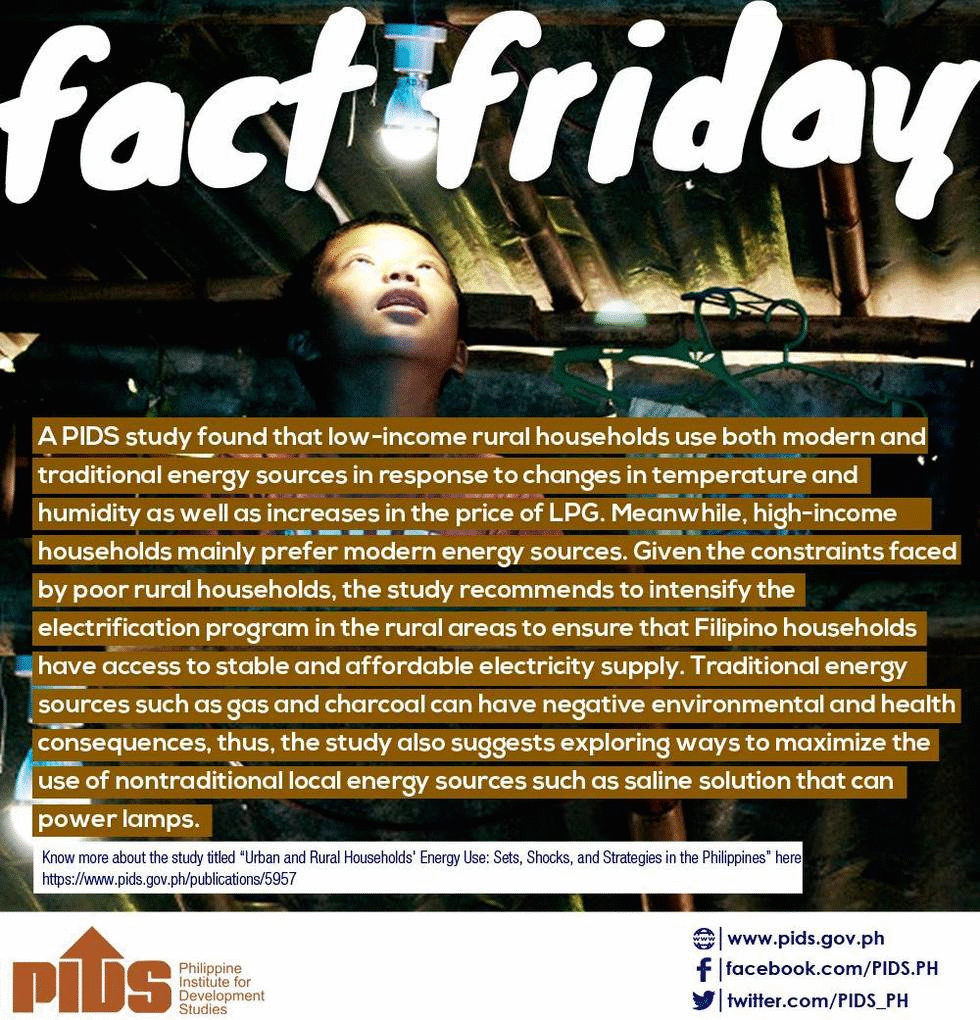Having trouble reading this email? View it in your browser. |
||||
 |
||||
|
||||
DEVELOPMENT RESEARCH NEWS DRN 2018 Vol. XXXVI No. 3:
PH urged to be optimistic toward FIRe
POLICY NOTES PN 2018-15:
Supply Chain Integration in Philippine SMEs This Policy Note delves into possible approaches the government and small and medium enterprises (SMEs) can adopt to enhance the business performance and competitiveness of Philippine SMEs, with emphasis on the supply chain integration. It identifies three main dimensions of supply chain integration, namely, internal, customer, and supplier integration. While all kinds of integration are important, it finds that particular attention should be given to internal integration given that both customer integration and supplier integration work through it. This implies that the impact of external integration (customer and supplier) on business performance and competitiveness will only take effect if internal integration is in place. To aid SMEs in terms of strengthening their internal integration, this study recommends the provision of support for human capital development (e.g., education, training, consultation, coaching) that will enhance the SMEs' application of management skills, such as the generation of effective operational and production plans and functional coordination. It also calls for the education of SMEs on the use of information systems that will aid in the integration of various internal processes and for the government to invest in technologies to facilitate such integration. Click here to download the paper. PN 2018-14: Harnessing Government's Role for the Fourth Industrial Revolution New, innovative, and emerging technologies are being used more than ever across homes, factories, farms, cities, and nations. These are disrupting traditional commerce and business models, thus ushering the Fourth Industrial Revolution (FIRe). This Policy Note describes how frontier technologies of the FIRe are altering patterns of consumption and production, which are not only resulting in opportunities for productivity growth but also heralding a lot of uncertainty, including likely unintended consequences. As such, it urges the government to take a decisive action, particularly in instituting regulatory reforms, in preparing our current and future workforce for future jobs, and in strengthening social protection to counter the likely negative effects of the FIRe. It also calls for the development of a whole-of-nation paradigm and action agenda, which can serve as a framework for assessing possibilities and alternative policies and a guide to improve our readiness for the future today. Click here to download the paper. PN 2018-13:
Duration of Export Relationships of Philippine MSMEs The Philippines has been recognized as a champion of micro, small, and medium enterprises (MSMEs) within the Association of Southeast Asian Nations (ASEAN) region. Sadly, even its own enterprises do not seem to survive once they enter international trade. For instance, this Policy Note finds that only 6 in every 10 Philippine MSMEs engaged in export trade manage to survive after their first year of operation outside the Philippines. This figure further dwindles to less than 4 in every 10 by the end of their fourth year. This study likewise finds that, on the average, the fourth year is critical in the trade duration, where the average decrease in survival rate is lowest. Given the findings, it urges the government to extend support to Philippine MSMEs that export products to ASEAN countries and other trade partners, strategically during the identified critical years of export survivability. Focus should be directed toward assistance in increasing the capability of the firms, targeted appropriately, to reach larger orders, either through financing or through consolidation with other similar firms that have successfully complied with the product standards required by foreign buyers. Click here to download the paper. PN 2018-12: A Process Evaluation of K to 12 Program This Policy Note assesses the K to 12 Transition Program and the functions of the Program Management Unit (PMU) of the Commission on Higher Education (CHED) tasked to operationalize it. Among others, it finds that the preparation for the full implementation of the K to 12 program has been inadequate. It also notes the lack of absorptive capacities of both CHED and its PMU in spearheading the program implementation as well as various administrative challenges such as unclear and slow procedures and poor monitoring mechanism, which hindered the country's smooth transition to the K to 12 program. To address these issues, the study recommends institutionalizing the review of policies and streamlining of procedures. In terms of capacity building, it urges CHED to begin the process of requesting regular plantilla from the Department of Budget and Management. It also recommends the strengthening of deconcentration processes initiated in 2017. Click here to download the paper. PN 2018-11: Barriers to Internationalization of Philippine SMEs Small and medium enterprises (SMEs) are important in many developing countries, including the Philippines. One factor that can help SMEs achieve higher productivity is through internationalization by connecting them to global value chains (GVCs). However, SMEs face a host of obstacles in doing so. This Policy Note identifies the challenges and enablers of connecting SMEs to GVCs. Among others, it finds that Philippine SMEs are weakly linked to GVCs. Meanwhile, the challenges and enablers can be grouped into five themes: (1) competition in ASEAN and East Asia; (2) international standards, regulatory requirements, and local institutions; (3) role of the government; (4) international market demand and inputs supply; and (5) entrepreneurial mind-set. To address these issues, this study recommends the enhancement of port and airport operations as well as the improvement of credit terms of SME loans. It also encourages SMEs to find new market niches where competition is not yet too tough. Click here to download the paper. DISCUSSION PAPERS DP 2018-17: Discovering the Philippines' Potential Export Portfolio While the Philippines has a long history of trade liberalization efforts and market-oriented reforms, the country has yet to see a genuine structural transformation. Recently, there are efforts to transform the manufacturing industry into a globally competitive industry supported by backward and forward linkages to create decent jobs and promote sustainable and comprehensive growth. Given these, it is imperative for the country to chart its short-, medium-, and long-run diversification strategies. This research assesses the sophistication scores of the country's current export portfolio and identifies products that result in a more diversified and high value-added mix of export commodities. Using some metrics from the product space, the paper finds that the average sophistication of products included in the country's export basket has barely improved from 1995 to 2014—remained lower than the average sophistication scores of exports in the world market. The paper also finds that some of the products in the country's existing export basket has potential forward linkages to goods with relatively higher sophistication, which in turn has potential linkages to even more sophisticated goods. However, the transformation does not happen overnight and requires well-thought-out policies, plans, and priorities. To this end, the paper advocates the implementation of measures outlined in the Philippine Export Development Plan. It also identifies other potential actions toward human capital development, innovations, and infrastructure programs. Click here to download the paper. DP 2018-16: Harnessing the Potential of the Philippines' Agricultural Sector: This paper analyzes the prospects of the country's agricultural sector to evolve into a high value-added sector. In particular, the paper identifies the country's agricultural exports that have forward linkages to other high value-adding agricultural products. To do this, the study uses some metrics from the product space to map the country's current agricultural exports to products that can be pursued in the short-, medium-, and long-run diversification strategies. This paper finds that the sophistication scores of the Philippines' agricultural exports from 1994 to 2014 has not improved. Despite this, the country can diversify into processed agricultural goods, which have sophistication scores relatively higher than that of primary agricultural products, such as fresh fruits. This indicates that developing the agro-processing industry appears to be a good strategy in harnessing the potential of the agricultural sector to contribute to sustainable economic growth and decent employment. While this portends good news, this also presents challenges on how the country's agricultural sector can transform into a high value-added sector. The transformation will definitely not happen overnight and deliberate steps toward the goal are necessary. To this end, the paper offers broad strategies that the country can pursue to realize actual linkages of the agricultural sector to more advanced and sophisticated industries. Click here to download the paper. |
November 21, 2018, 8:30AM–5PM December 10, 2018, 8AM–5PM -----------------------------------------
The Philippine Journal of Development is a professional journal published by the Philippine Institute for Development Studies. It accepts papers that examine key issues in development and have strong relevance to policy development. As a multidisciplinary social science journal, it accepts papers in the fields of economics, political science, public administration, sociology, and other related disciplines. It considers papers that have strong policy implications on national or international concerns, particularly development issues in the Asia-Pacific region. CLICK HERE for the guidelines in the preparation of articles. Submissions and inquiries may be sent to PJD@mail.pids.gov.ph. |
|||
Small and medium enterprises (SMEs) in the Philippines need more support from government to help them scale up and internationalize their operations through global value chains (GVCs).
The K to 12 Transition Program of the Commission on Higher Education (CHED) has been mired in administrative issues, hampering the country’s smooth transition to the K to 12 Program, a study by the Philippine Institute for Development Studies (PIDS) revealed.
Expect Japan to boost its development assistance in the areas of infrastructure, disaster management, and defense in the Southeast Asian region, including the Philippines.
The rising prices of fuel and electricity in the Philippines are major roadblocks to foreign investors who may want to do business in the country. Using data from the National Competitiveness Council for the period 2011–2015, Francisco and his coauthors Dr. Tristan Canare and Mr. Jose Fernando Morales, tested the relationship between business creation and the ease and cost of doing business in cities and municipalities. READ MORE
The Philippine Institute for Development Studies (PIDS) is proud to be part of the Global Trade and Innovation Policy Alliance (GTIPA), an international think tank network that formulates evidence-based research policies to expand trade and investment, foster innovation-based growth and development strategies, and encourage governments to play proactive roles in spurring innovation and productivity. “Our membership in the GTIPA is an important step for us to participate in the global conversation on trade, innovation, and technology in a meaningful manner.
The research and development (R&D) sector is not getting enough support from the government. |
||||
POLICY ISSUE AT A GLANCE Filipinos' Vulnerability To Poverty Shocks, such as natural disasters, inflation, income loss, conflicts, and wars, negatively affect people's lives. These shocks can make the poor poorer and the nonpoor to fall into poverty. This infographic provides an overview of poverty incidence in the Philippines and why the pace of poverty reduction had been slow. It also provides an estimate of Filipinos' vulnerability to future poverty, a profile of vulnerable Filipino households based on 2015 data, and some policy recommendations. This infographic is based on two studies:
To view in actual size, visit the PIDS website or the PIDS Facebook page.
FACT FRIDAY Every Friday, PIDS releases nuggets of research results culled from different PIDS studies. Here are the latest #PIDSFactFriday issue. Like us on Facebook for more #PIDSFactFriday issues. |
||||
Need help? Have feedback? Feel free to contact us. © 2018 Philippine Institute for Development Studies.
|
||||
 This issue of the Development Research News looks at the prospects, opportunities, and challenges facing the Philippines in the advent of the Fourth Industrial Revolution (FIRe). It summarizes the presentations and insights shared by local and foreign speakers who participated in the events led by the Philippine Institute for Development Studies during the month-long Development Policy Research Month in September. Likewise, it looks at the challenges confronting Muslim Mindanao, a poverty- and conflict-stricken region, in the face of new advancements in science and technology. The issue also features an article on the Internet of Things and how this technology can improve the Philippine manufacturing sector, as well as infographics on other frontier technologies of the FIRe.
This issue of the Development Research News looks at the prospects, opportunities, and challenges facing the Philippines in the advent of the Fourth Industrial Revolution (FIRe). It summarizes the presentations and insights shared by local and foreign speakers who participated in the events led by the Philippine Institute for Development Studies during the month-long Development Policy Research Month in September. Likewise, it looks at the challenges confronting Muslim Mindanao, a poverty- and conflict-stricken region, in the face of new advancements in science and technology. The issue also features an article on the Internet of Things and how this technology can improve the Philippine manufacturing sector, as well as infographics on other frontier technologies of the FIRe. .jpg)

